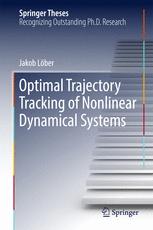

Most ebook files are in PDF format, so you can easily read them using various software such as Foxit Reader or directly on the Google Chrome browser.
Some ebook files are released by publishers in other formats such as .awz, .mobi, .epub, .fb2, etc. You may need to install specific software to read these formats on mobile/PC, such as Calibre.
Please read the tutorial at this link: https://ebookbell.com/faq
We offer FREE conversion to the popular formats you request; however, this may take some time. Therefore, right after payment, please email us, and we will try to provide the service as quickly as possible.
For some exceptional file formats or broken links (if any), please refrain from opening any disputes. Instead, email us first, and we will try to assist within a maximum of 6 hours.
EbookBell Team

0.0
0 reviewsBy establishing an alternative foundation of control theory, this thesis represents a significant advance in the theory of control systems, of interest to a broad range of scientists and engineers. While common control strategies for dynamical systems center on the system state as the object to be controlled, the approach developed here focuses on the state trajectory. The concept of precisely realizable trajectories identifies those trajectories that can be accurately achieved by applying appropriate control signals. The resulting simple expressions for the control signal lend themselves to immediate application in science and technology. The approach permits the generalization of many well-known results from the control theory of linear systems, e.g. the Kalman rank condition to nonlinear systems. The relationship between controllability, optimal control and trajectory tracking are clarified. Furthermore, the existence of linear structures underlying nonlinear optimal control is revealed, enabling the derivation of exact analytical solutions to an entire class of nonlinear optimal trajectory tracking problems. The clear and self-contained presentation focuses on a general and mathematically rigorous analysis of controlled dynamical systems. The concepts developed are visualized with the help of particular dynamical systems motivated by physics and chemistry.